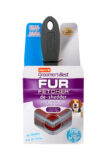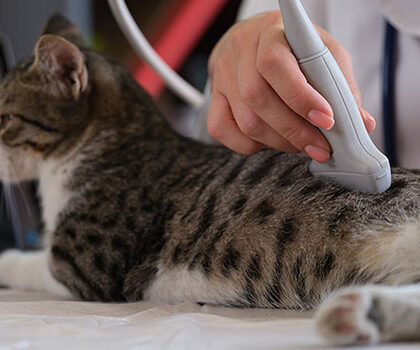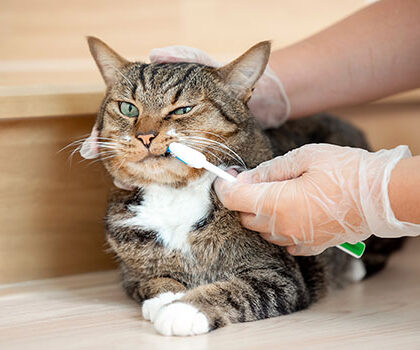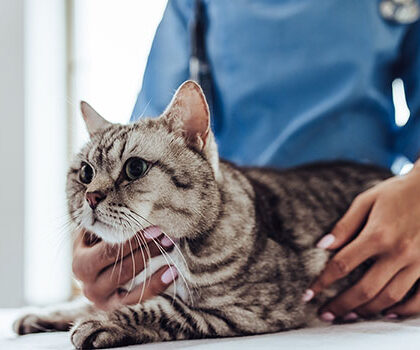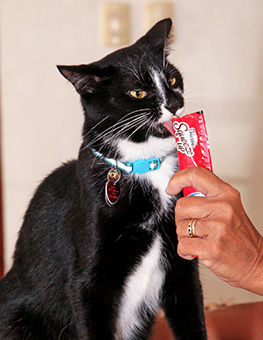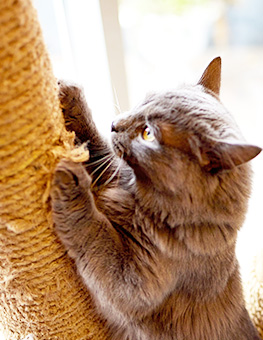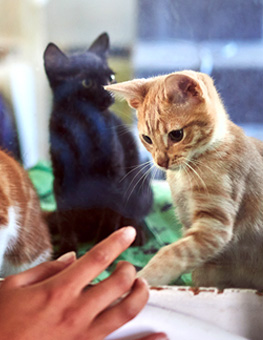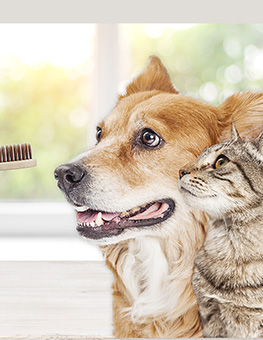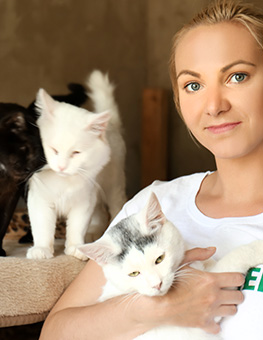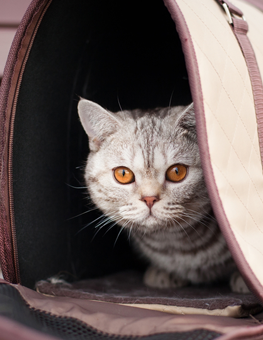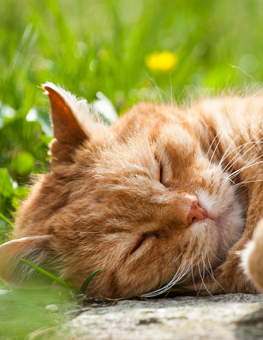Becoming a Foster Parent for a Pet in Need
If you’re an animal lover, chances are that you’re aware of the problem of pet overpopulation. Thousands of pets are waiting in shelters until they find their forever home, but sadly, not all will find one.
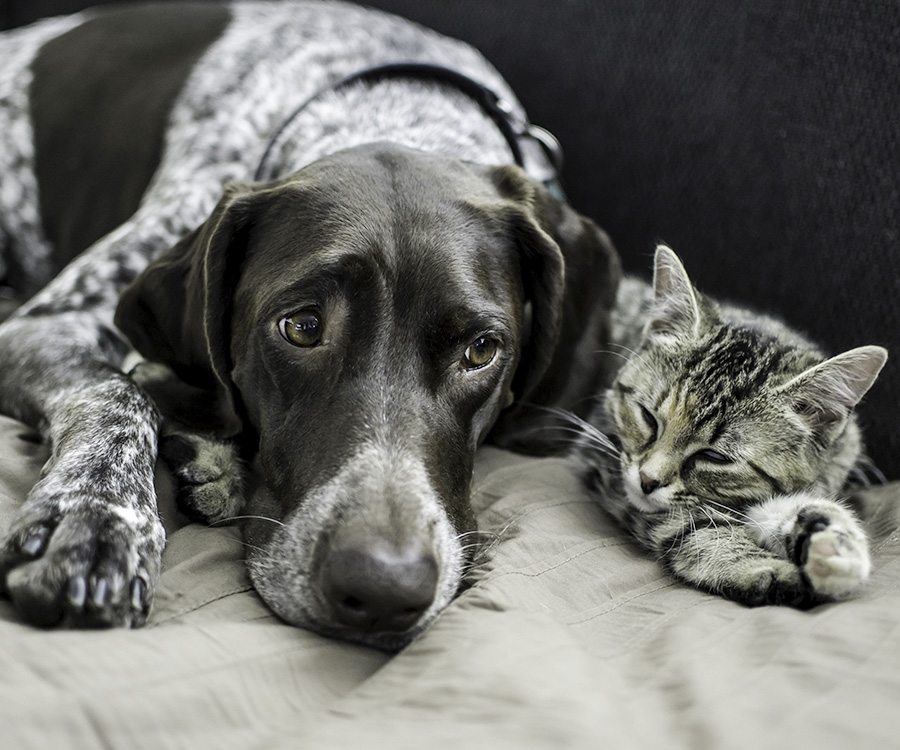
Becoming a pet foster parent to an animal who has become homeless can help until they find their furrever home.
Fortunately, you can help! In addition to spaying and neutering your pets, have you thought about becoming a foster parent? It’s one of the many ways we can help improve the lives of homeless pets.
More often than you might think, pets seeking adoption came from somewhere that they were well-taken care of and loved. Unfortunately, due to a variety of circumstances, many become homeless and alone. To go from a loving home to an unfamiliar place surrounded by strangers (including other animals) can be quite a scary and stressful place! Many times the stress becomes responsible for self-destructive behavior.
New mothers, young puppies, and senior dogs are more likely to be vulnerable to shelter environments and need a quieter place to raise their young, grow, and age peacefully. Fostering becomes the best choice for these animals until the perfect home can be found.
If you decide you want to be a foster parent there are several important factors to consider:
What Kind of Animal Are You Able to Foster?
Be sure the type of animal and breed you decide to foster is suitable for your current living situation. Some shelters may require a cat-free house if you’re trying to foster a dog and vice versa. Your local dog shelter may be able to direct you to the correct place if you have specific breed or size requests.
Ask Questions
Find out who will be financially responsible for food, vet bills, leashes, crate, and other items you may need for the animal. These are often provided at no cost to the foster parent. Ask how scheduling occurs when meeting prospective adopters.
What is Your Experience Level?
It’s not recommended to foster pets with behavior problems more complex than what you are willing to deal with. Many pets who need fostering may suffer from separation anxiety and excessive barking. Also, keep in mind you may have to deal with certain health issues the pet may suffer from, which can include medication and special dietary needs.
Deciding to foster a pet can be a very rewarding experience and an awesome way to help those who can’t help themselves. It can be tough to see them go when they find their forever home, but knowing that they will be taken care of and loved will bring you peace of mind.
Do you currently foster any pets? How has the experience changed your life and what recommendations or advice can you give to those considering being a foster parent?
Helping Your Pet Mourn the Loss of Another Pet
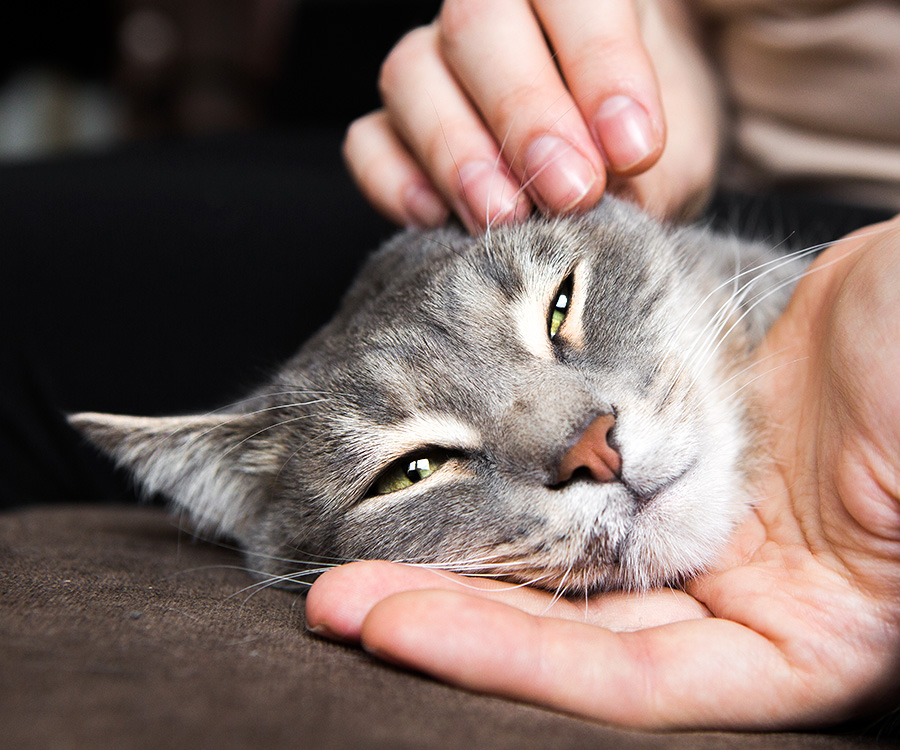
Spend as much time as possible with your grieving pet, giving him affection.
Animals are far more social than we give them credit for, and they can form indelible bonds with other pets over the course of their lifetimes. If you've recently lost a pet and have seen visible changes in your other four-legged friend’s demeanor, appetite, and energy level, he's probably grieving in the same way that you are.
There are myriad ways to help your furry friend cope with the loss of his buddy and lift his spirits.
Adopt Another Pet
This may seem like the obvious plan of action, but you'll have to go into the process with an open mind. Some animals will see a new pet as an intrusion on their territory and may not respond positively. However, others can get along very well with a new four-legged friend, so it all comes down to how he interacts with his new house guest. You should also accept the possibility that a new pet may not work out, and you might have to look elsewhere. Typically, adopting a younger animal is best, as he or she will look up to your current pet and won't feel threatened.
Shower Him with Affection
As much as you may pay attention to your pet, he will surely miss having another animal to play and spend time with. When you come home, make an effort to spend as much time with him as possible, speak in a reassuring voice, and have a few treats in tow. This can be a welcome distraction from the grieving process and may help to improve his demeanor.
Pet Presents
One of the biggest problems for pets is the presence of the old pet's scent on toys and food bowls which could prolong the grieving process. Do your furry friend a favor and pick up new pet accessories that will be meant exclusively for him. This can speed along the healing process and get your cat used to the idea of being the only cat in the house.
Losing a pet is certainly tough, but improving the wellness of your current pet should be one of your chief concerns in the months ahead. By trying a few of these methods, you can find a nice balance that will help your furry friend return to his vibrant self.



